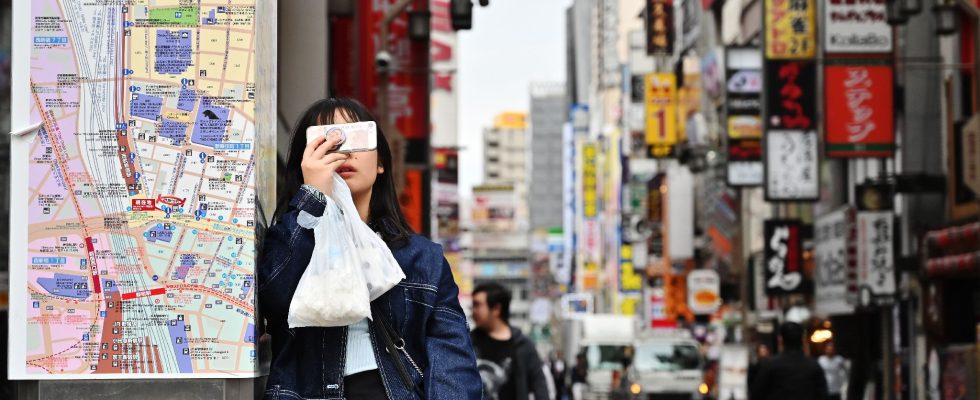“We feel supported. Many events are organized, such as visits to museums or picnics under the cherry trees.” Mai Thi Phuong, a wise-cut Vietnamese girl, enjoys her new life at the Ishikawa construction company. Hired in 2020 in public relations for the family SME based in Ohta, in the department of Gunma (central Japan), she is one of nine foreign employees (out of 236 employees).
A company in the purest Japanese tradition: gray offices separated by plastic walls, masked employees with gray jackets over shirts and ties. Nothing revolutionary, if not a proactive policy to recruit foreigners and do everything to keep them. “It’s a question of survival. It is difficult to find staff in our trades: civil engineering or digital transformation”, explains Kazu Amagasa, the executive director.
Ishikawa, who has an office in Ho Chi Minh City, is prospecting students in Vietnam. “The Vietnamese are better than the Japanese in mathematics and science. And they have good communication skills”, points out Kazu Amagasa. One of them, Phan Huu Thiet, was recruited in 2018. He is pampered by the company, which helped him obtain his visa, find accommodation and finance his Japanese lessons. “At Ishikawa, we don’t make a difference between Japanese and foreigners,” insists Amagasa.
Three times more foreigners than in the 1990s
The SME policy reflects a change in the outlook on foreigners, in a Japan that is reluctant to immigration despite its growing labor needs, linked to accelerated demographic decline. The unemployment rate did not exceed 2.6% in February, with 136 job offers per unemployed…
Tokyo consented to a timid opening in the early 1990s, with visas granted to the descendants of poor Japanese peasants who emigrated at the beginning of the 20th century to Brazil and Peru. These low-skilled workers are hired as temporary workers on car assembly lines: they form communities in Toyota, the city of the eponymous manufacturer, Hamamatsu or Gunma, where Subaru or Panasonic factories are located. But, at the slightest crisis, like that of 2008, they are invited to return to their country.
The promotion of the employment of women and seniors having not been enough, the government accepted in 2018 the recruitment of foreigners in key sectors, such as health, agriculture or shipbuilding. Last February, Japan relaxed the granting of permanent resident status to foreign researchers and engineers. For Eiji Oguma, an immigration specialist from Keio University, the objective of the policies “is to support businesses without changing Japanese society”.
Japan was home to more than 3 million foreigners at the end of 2022, three times more than in the 1990s, but not enough to meet the needs. Local authorities and businesses – often critical of bureaucracy for visas – exploit every opportunity to attract foreigners. The challenge: maintain activity and fight against desertification. Gunma Prefecture created in 2022 a label – awarded to Ishikawa – for companies that employ non-Japanese and implement “remarkable initiatives to create an environment conducive to their integration”.
This evolution is accompanied by a better acceptance of foreigners. “I arrived from Brazil in 1999 with my parents, at the age of 10”, recalls Paolo Issamu Hirano, today at the head of a consulting company, in Oizumi, town of Gunma where 1 inhabitant out of 5 is foreign. “It was a dream, but I couldn’t make friends. They told me: ‘go back to your country!’.” Over time, he adds, “people get used to it.” Integration remains imperfect and the look suspicious in the face of different behaviors. But the city’s station has been repainted in the colors of the Brazilian flag. In the city center, the Takara supermarket, run by the Brazilian Araujo Wagner, offers imported products. His Japanese-born son Leonardo opened a popular Brazilian restaurant. A little further on is Kumar Yamada, a naturalized Japanese Nepalese, who runs a shop specializing in Southeast Asia, as the communities in this region continue to grow. Proof, according to Professor Oguma, that “the country is changing, whether the government likes it or not”.
